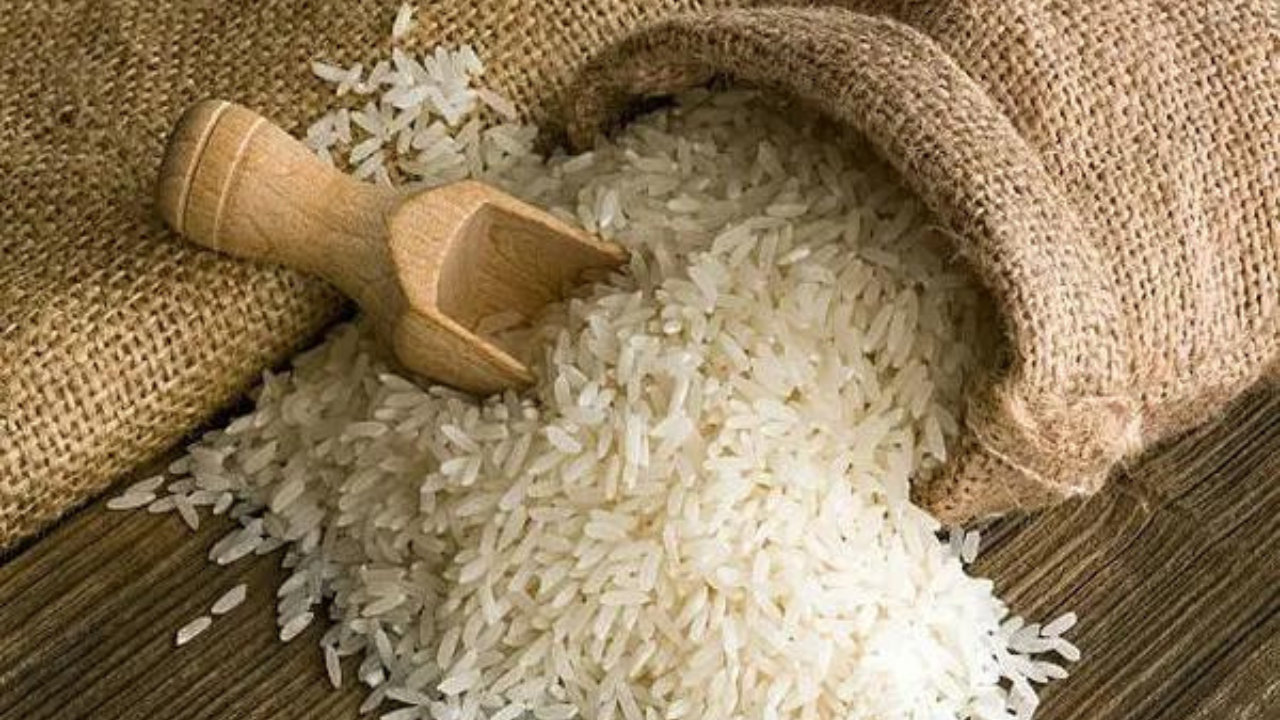Email :56
NEW DELHI: The ministry of Commerce and Industry on Friday announced that the Center has removed the minimum export price (MEP) threshold for basmati rice exports, in order to increase farmers income by with the export of basmati rice, a premier GI-tagged variety from India.
This decision was taken in light of adequate domestic rice availability and ongoing trade concerns.
The export contracts would be closely monitored by the Agricultural and Processed Food Products Export Development Authority in order to avoid unrealistic pricing of basmati rice and ensure transparency in export practices.
Earlier in August 2023, a floor price of $1,200 per metric tonne (MT) was set for basmati rice exports as a temporary measure due to a tight domestic supply and increasing rice prices in the local market.
the decision was also taken to prevent the misclassification of non-basmati rice as basmati during exports, as exporting non-basmati white rice is prohibited to address domestic demand.
However, following representations from trade bodies and stakeholders, the government reduced the floor price to $950 per MT in October 2023.
Additionally, Union agriculture minister Shivraj Singh Chouhan in a post on X, announced that the government has decided to raise the basic duty on refined oil to 32.5 per cent. This move is expected to increase demand for mustard, sunflower, and groundnut crops, thereby boosting farmers’ incomes.
“The Modi government is committed to the development of farmers. It has decided to increase the basic duty on refined oil to 32.5 per cent. This will boost demand for mustard, sunflower, and groundnut crops. Farmers will receive better prices for these crops, and with the growth of refineries in small and rural areas, employment opportunities will also rise,” Chouhan said in the post.
The government has increased the import duty on edible oils from 0 percent to 20 percent. According to Chouhan, when other components are included, the total effective duty will amount to 27.5 percent.
“This decision will increase the production of soybean meal, which will be exported. Other sectors related to soy will also benefit,” Chouhan said in his post.
Earlier on Friday, the government also abolished MEP on onions following expectations of a robust kharif crop and a favorable monsoon, along with stable market conditions at both the mandi and retail levels.
On May 4, the government lifted the export ban on onions, permitting exports with a Minimum Export Price (MEP) of $550 per tonne and an export duty of 40 percent. This change, effective as of Friday, is expected to benefit farmers by enabling onion exports.
This decision was taken in light of adequate domestic rice availability and ongoing trade concerns.
The export contracts would be closely monitored by the Agricultural and Processed Food Products Export Development Authority in order to avoid unrealistic pricing of basmati rice and ensure transparency in export practices.
Earlier in August 2023, a floor price of $1,200 per metric tonne (MT) was set for basmati rice exports as a temporary measure due to a tight domestic supply and increasing rice prices in the local market.
the decision was also taken to prevent the misclassification of non-basmati rice as basmati during exports, as exporting non-basmati white rice is prohibited to address domestic demand.
However, following representations from trade bodies and stakeholders, the government reduced the floor price to $950 per MT in October 2023.
Additionally, Union agriculture minister Shivraj Singh Chouhan in a post on X, announced that the government has decided to raise the basic duty on refined oil to 32.5 per cent. This move is expected to increase demand for mustard, sunflower, and groundnut crops, thereby boosting farmers’ incomes.
“The Modi government is committed to the development of farmers. It has decided to increase the basic duty on refined oil to 32.5 per cent. This will boost demand for mustard, sunflower, and groundnut crops. Farmers will receive better prices for these crops, and with the growth of refineries in small and rural areas, employment opportunities will also rise,” Chouhan said in the post.
The government has increased the import duty on edible oils from 0 percent to 20 percent. According to Chouhan, when other components are included, the total effective duty will amount to 27.5 percent.
“This decision will increase the production of soybean meal, which will be exported. Other sectors related to soy will also benefit,” Chouhan said in his post.
Earlier on Friday, the government also abolished MEP on onions following expectations of a robust kharif crop and a favorable monsoon, along with stable market conditions at both the mandi and retail levels.
On May 4, the government lifted the export ban on onions, permitting exports with a Minimum Export Price (MEP) of $550 per tonne and an export duty of 40 percent. This change, effective as of Friday, is expected to benefit farmers by enabling onion exports.


